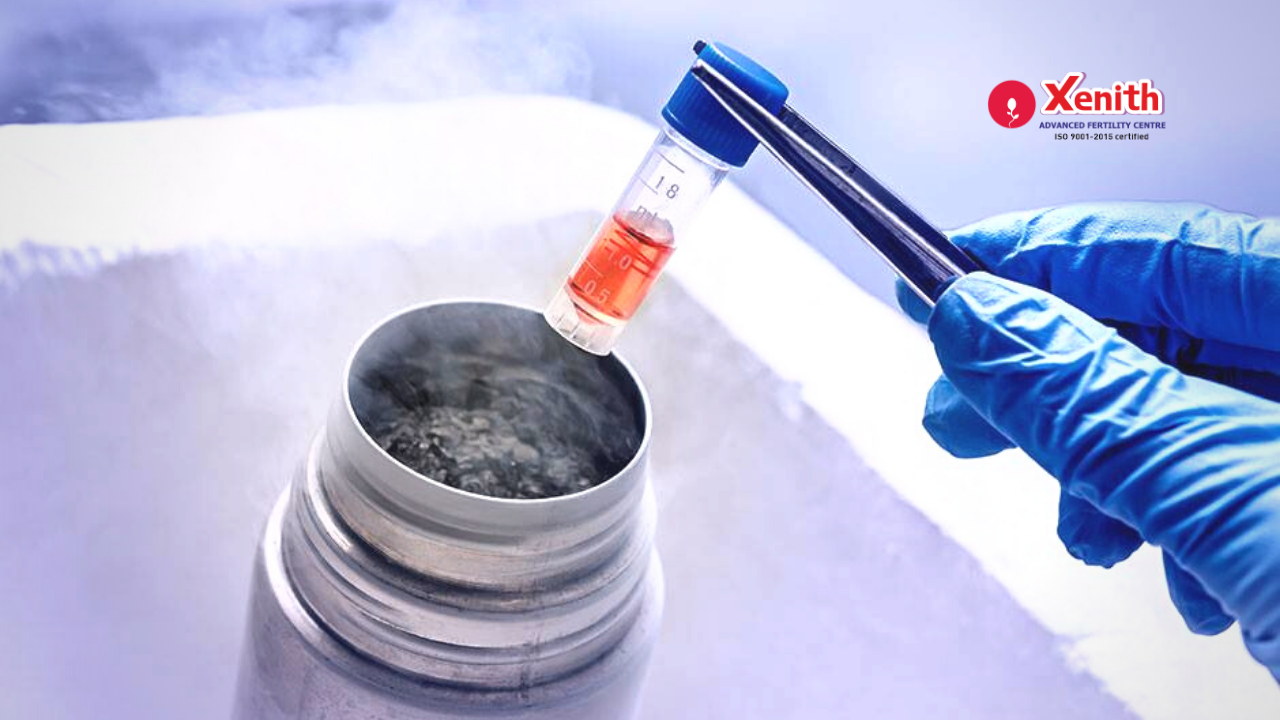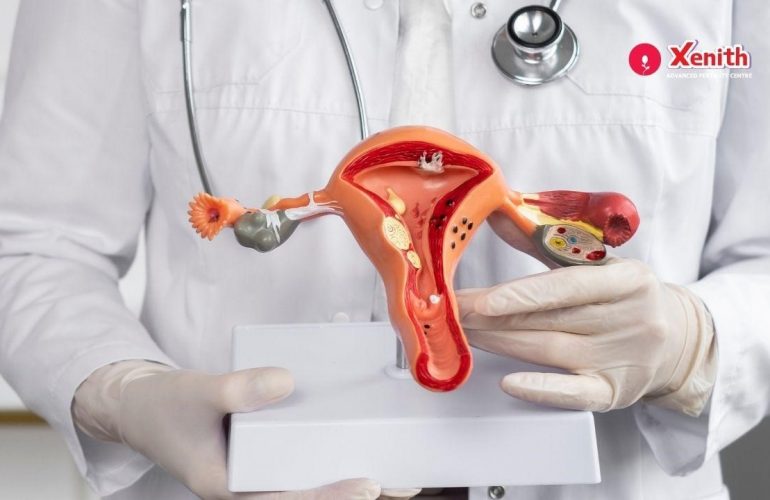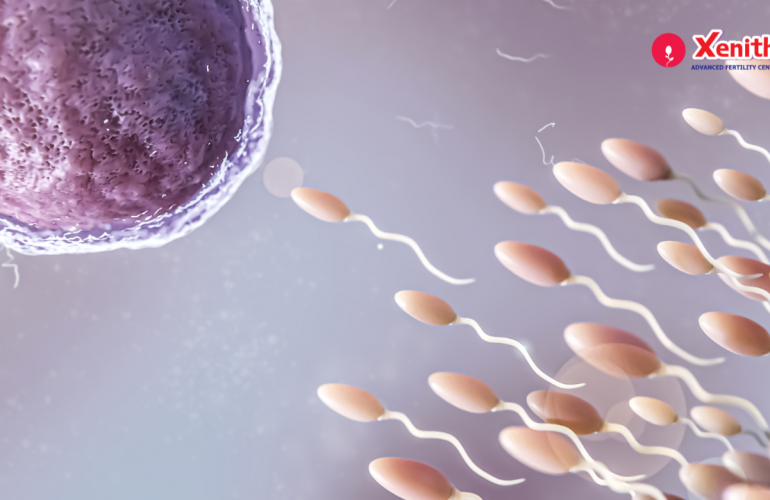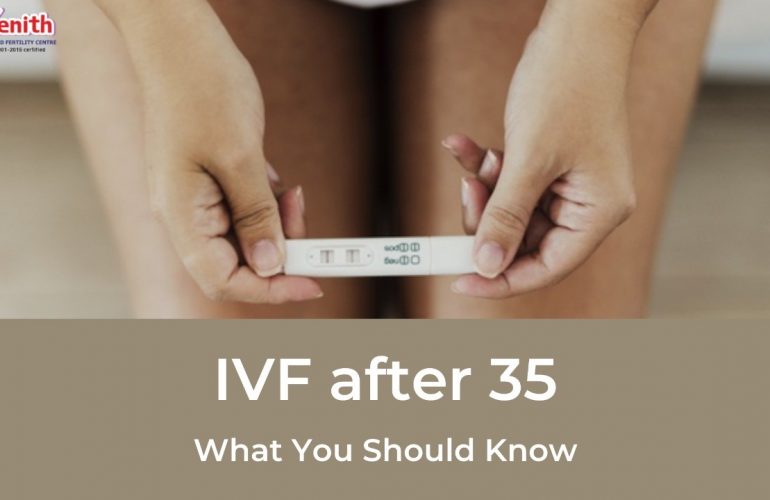More and more women are open to plan their pregnancies. They may want to achieve their career goals, be financially stable, get married later in life, or have health issues. Since the reservoir of eggs depletes in quantity and quality, as age advances, a woman may want to preserve good quality eggs for future pregnancy. Egg freezing is one of the methods to preserve one’s eggs at a younger age so that at a later date, these eggs can be used through in vitro fertilization (IVF) to have a baby.
Here are 10 common questions that are often asked about egg freezing

Free Thursday Consultation
Book Your Appointment- At what age do you begin?
It is better to preserve your eggs before age of 35. However, age can be just a number because no two women are the same and each person is unique with different health issues, genetic factors, or other problems. One study has found that egg freezing has the largest benefit and is most cost effective before age 37. However, the highest probability of live birth was when egg freezing was done at ages of less than 34 years and there was little benefit if it was done between ages 25 to 30 years.1 Having said that, the earlier the oocytes are frozen the better the quality of the oocytes.
- What does the whole procedure entail?
Initially the doctor will review your medical history, do a physical exam, run some blood tests and do a pelvic ultrasound in order to find out if the number of eggs you have is enough for egg freezing. The treatment then is begun with medications and hormonal injections to stimulate egg growth and you might need to go to the clinic for blood tests and ultrasounds in order for them to monitor how the eggs are growing and when to retrieve those eggs. Once the eggs have matured, they are removed using a needle under guidance of ultrasound and done under anaesthesia. The procedure itself will take 15-30 minutes. It is then cryogenically frozen immediately for future use. The whole procedure will take approximately 2-3 weeks and is the same as the initial stages of IVF process. When the patient is ready to try to become pregnant, the eggs are thawed, injected with a sperm to fertilize to form an embryo and then transferred to the uterus for implantation.
- Is fertility treatment safe?
Fertility treatment is quite safe with minimal risks. There might be some side effects from the medications like bloating, headache, and breast tenderness although these symptoms are usually reversible. You might feel slight cramping after waking up from the anaesthesia.
- How do they freeze the eggs?
The eggs are frozen in a matter of milliseconds, in a process called vitrification or fast freezing. Eggs contain water and freezing them slowly leads to crystal formation which can in turn damage the egg. With vitrification, it happens so fast that ice crystals cannot be formed. In this process, water molecules are replaced with a preserving solution before being flash frozen in liquid nitrogen at -196oC in special cryogenic freezers. At this low temperature, the biological process in the egg is halted so that it can be stored safely for later use. In order to later thaw the egg, it must be warmed quickly and removed from the solution carefully. The thawed egg is then fertilized with a sperm using IVF with intracytoplasmic sperm injection(ICSI) where a single sperm is injected directly into the egg. ICSI is the preferred method because the freezing process hardens the eggs outer membrane.
- How long can we keep the eggs?
Theoretically, frozen eggs can be stored for a long time but this is governed by the laws in various countries. In India, frozen eggs and their records can be kept for ten years.
- Will I be using up my egg supply more by egg freezing?
Every month a group of follicles get ready to mature and become eggs. However, only one egg will ovulate and the remaining ones never get used and degrade. In the procedure of egg freezing these remaining eggs will also be rescued and removed for freezing. You don’t use up more eggs than you normally would.
- How many eggs should you freeze?
There are many factors which can determine how many eggs to retrieve. Generally, the more eggs you have, the better chances of getting pregnant. But the chances of getting good quality and quantity of eggs also depends on the age when you freeze the eggs because egg quality and quantity declines with age. An older woman might need to freeze more eggs in order to have better chances of getting pregnant. In one study, it was found that a woman under the age of 35 has about 85% chance of having a baby with 15 frozen eggs.2 The number of eggs you freeze also depends on how many children you would want to have in the future. Talk to your doctor about what your chances would be for becoming pregnant.
- What is the cost of egg freezing?
The cost of egg freezing could be quite considerable and should include the cost of the freezing procedure itself as well as the yearly cost of maintaining the eggs in the frozen state. The price can vary from clinic to clinic. Some questions to ask if it’s included in the price package are: does it include doctors consultation fee, cost of anaesthesia and the procedure. Ask whether the cost include additional tests, if needed. Does the cost include medications and if medications are not included, how much would medications cost separately? Make sure you fully understand what is included in the price breakdown so that you will not get a surprise charge later.
- Is egg freezing safe for baby and mother?
Many babies have been born using this technology. Studies showed no increased rate of birth defects compared to the general population. They showed no increased rates of chromosomal or birth defects or pregnancy complications.
- How long does it take to get your period back again after egg retrieval?
It usually takes 7-10 days after getting the injection that triggers ovulation for egg retrieval. Then the periods will be back to normal. Your fertility will not be decreased and this procedure will not cause you to go into early menopause. If you have any more questions about egg freezing and if you are contemplating egg freezing, please feel free to contact the fertility specialists in Pune at Xenith Advanced Fertility Centre.




